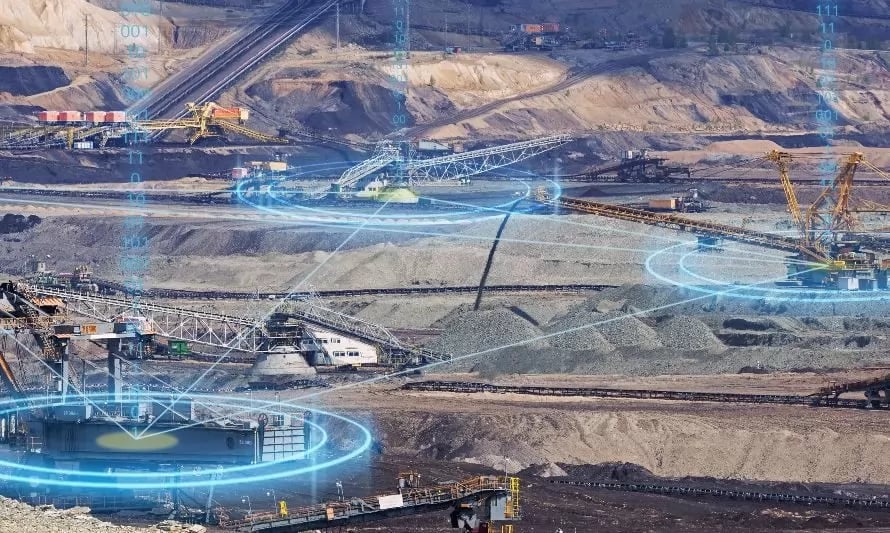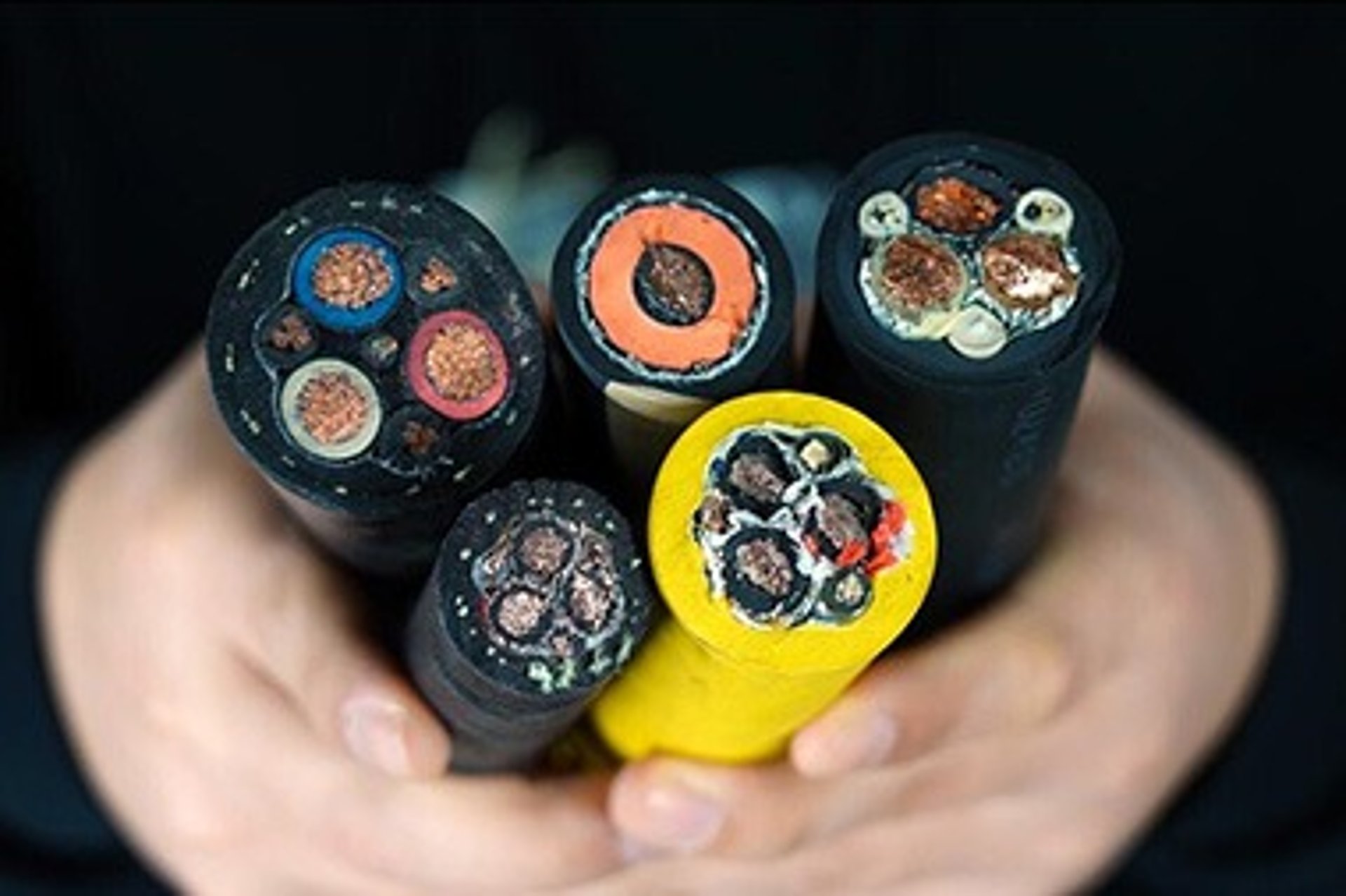Anhui Feichun Special Cable Co.,Ltd Email: Li.wang@feichuncables.com
The Rise of Smart Cables in Mining Industry: A Game Changer for Power Management
Explore how smart cables with real-time monitoring and fault detection are transforming South Africa's mining industry, enhancing power reliability and reducing downtime.
Li.wang@Feichun Cable
7/7/20255 min read


South Africa's mining industry is one of the largest contributors to the country’s economy, generating significant revenue from the extraction of precious metals like gold, platinum, and coal. However, maintaining a stable and efficient power supply within the mining sector is a constant challenge due to the harsh, remote, and often hazardous working conditions. Traditional power cables, while essential, are prone to wear and tear, leading to unexpected failures, downtime, and increased operational costs.
To address these challenges, a new innovation in power management has emerged: smart cables. These advanced cables come equipped with real-time monitoring systems and sensors to continuously assess the health of the cable, detect faults early, and provide actionable data to operators. As the mining industry increasingly turns to smart technologies for improved efficiency, safety, and reliability, smart cables are positioned to become a game-changer in South Africa's mining landscape.
What Are Smart Cables?
Smart cables are a cutting-edge development in the world of electrical power transmission. Unlike traditional cables, which simply carry electrical current, smart cables integrate sensor technology and Internet of Things (IoT) capabilities to continuously monitor the condition of the cable. These cables can detect a wide range of potential issues such as temperature fluctuations, wear and tear, electrical faults, and corrosion—issues that may otherwise go unnoticed until they cause significant damage or system failure.
Smart cables are designed to communicate with centralized monitoring systems, sending real-time data on their health status. This data can then be analyzed to predict when maintenance or replacement is needed, allowing operators to take preventive measures before a fault disrupts operations.
Some key features of smart cables include:
Real-Time Monitoring: Continuous surveillance of the cable's temperature, current load, and insulation condition.
Fault Detection: Immediate alerts when potential faults, such as short circuits, insulation failures, or overheating, are detected.
Remote Monitoring and Control: Operators can track the cable's status remotely, reducing the need for manual inspections and increasing efficiency.
Predictive Maintenance: By analyzing data over time, smart cables can predict potential issues and recommend maintenance actions.
The integration of smart technologies in cables offers not only improved reliability but also enhanced safety in environments like South African mines, where the stakes are high.
Benefits of Smart Cables for the Mining Industry
The mining industry faces unique challenges that require innovative solutions, especially when it comes to power management. Smart cables provide several compelling benefits to mines in South Africa, helping to tackle these challenges head-on.
Early Fault Detection and Prevention
One of the most significant advantages of smart cables is their ability to provide early fault detection. Traditional cables may fail unexpectedly due to undetected issues such as overheating or insulation damage. Smart cables, on the other hand, can identify these problems early by continuously monitoring key parameters, such as temperature, voltage, and current load.
For example, if a cable begins to overheat due to an increased load or damaged insulation, the smart cable will send an alert to the monitoring system. This allows the operators to take preventive action—whether that means reducing the load, rerouting power, or scheduling maintenance—before a more serious failure occurs. By detecting faults early, smart cables help reduce the risk of major failures that could lead to extended production stoppages and costly repairs.
Improved Operational Efficiency
Smart cables allow mines to optimize their power supply systems by providing real-time data on the health of the cables. This enables operators to make informed decisions about the power usage across different sections of the mine, improving overall operational efficiency. For instance, operators can monitor which cables are experiencing the most strain and redistribute power to prevent overloads.
Furthermore, smart cables can integrate seamlessly with other IoT devices used in mining operations, creating a connected ecosystem. This integration helps operators manage power consumption more effectively, contributing to energy savings and reduced costs.
Enhanced Safety
Safety is paramount in the mining industry, and smart cables contribute significantly to ensuring a safer working environment. By continuously monitoring the health of the cables, these smart systems help prevent potential electrical fires, equipment malfunctions, or dangerous power surges. Given the high-risk nature of mining environments, smart cables reduce the chances of safety incidents related to electrical failures.
In addition, with real-time alerts and remote monitoring, operators can respond more quickly to issues, ensuring that any risks to personnel or equipment are managed promptly.
Reduced Downtime and Maintenance Costs
Mining operations often experience extended downtime due to cable failures, which can result in substantial financial losses. Smart cables help minimize this downtime by predicting potential failures before they happen, enabling planned maintenance rather than emergency repairs. This not only improves operational efficiency but also helps avoid the high costs associated with unscheduled downtime.
By providing data that supports predictive maintenance, smart cables allow mines to shift from reactive to proactive maintenance strategies, ultimately reducing maintenance costs over time.
Market Prospects for Smart Cables in South Africa
The market for smart cables in South Africa is poised for significant growth. Several factors contribute to the increasing demand for these advanced solutions in the mining sector.
Rising Power Demands in the Mining Sector
South Africa’s mining industry is constantly evolving, with increased energy demands from expanding operations and more advanced equipment. With the growing need for reliable and continuous power, mining companies are looking for ways to enhance the stability of their electrical systems. Smart cables, with their ability to provide real-time monitoring and predictive maintenance, are a natural fit for this evolving need.
The Growth of IoT Technology
As the Internet of Things (IoT) continues to shape industries around the world, the mining sector in South Africa is beginning to embrace these technological advancements. The integration of IoT-enabled smart cables is part of the broader trend toward digitization and automation in mining operations. This trend is expected to accelerate as more mines adopt smart technologies to improve their operations.
Government Regulations and Safety Standards
South Africa’s government has stringent safety regulations that require mining companies to ensure the reliability and safety of their equipment, including electrical systems. As the regulatory landscape continues to evolve, mines are being pushed to adopt technologies that not only meet compliance requirements but also improve the safety and efficiency of their operations. Smart cables, with their ability to prevent faults and improve safety, are perfectly positioned to help companies comply with these regulations.
Environmental and Economic Benefits
With a growing emphasis on sustainability, South African mining companies are looking for ways to reduce their carbon footprint and improve energy efficiency. Smart cables help achieve these goals by allowing more precise control over power distribution and reducing the environmental impact of energy waste. Additionally, the long-term cost savings associated with reduced downtime and lower maintenance costs make smart cables an attractive investment for mining companies.
Conclusion
The adoption of smart cables in South Africa’s mining industry marks a significant step forward in the quest for greater operational efficiency, safety, and sustainability. By offering real-time monitoring, early fault detection, and predictive maintenance, smart cables are revolutionizing the way power systems are managed in mines. As the market for smart cables grows, driven by rising power demands, IoT adoption, and stringent safety regulations, these cables are set to become a vital component of the mining industry’s technological future.
For mining companies looking to stay ahead of the curve, investing in smart cables presents an opportunity to not only enhance operational efficiency but also reduce downtime, improve safety, and lower maintenance costs. The future of mining power management is undeniably smart—and South African mines are ready to embrace this innovative technology.

Email Address: Li.wang@feichuncables.com
© 2025. All rights reserved.


One-click to Quickly Contact
Products
Contact
Company
Location:
Building A Private Science and Technology Park, Hefei Economic and Technological Development Zone, Anhui Province, China
Heat Resistant Cable
WhatsApp: +86 17333223430
